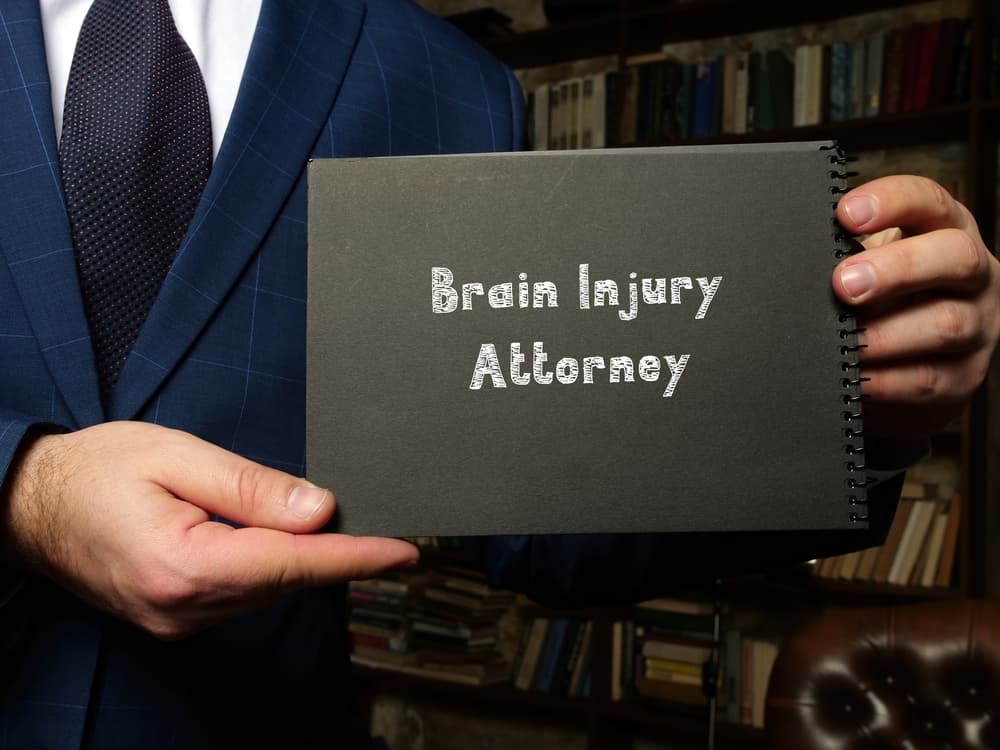Injuries to the brain often have a devastating impact on the victim’s life. While some brain injuries have symptoms that may be resolved over some time, others leave permanent damage that will have lifelong effects. When someone suffers a brain injury due to the negligence or harmful actions of another party, the victim or their loved ones often seek financial compensation through legal action. What many people are not aware of at the onset of this process is how long a brain injury claim may take before it reaches its outcome.
To gain a better insight into the process of filing a brain injury claim, it can be helpful to understand brain injuries themselves, how they are commonly caused, and the step-by-step legal process of pursuing compensation for such an injury. While each brain injury is unique, there is a roadmap that the legal process follows. Various factors at play can affect the timeline of your claim, which is why it is important to consult with a lawyer who has experience in handling brain injury claims.
If you or someone you love has suffered a brain injury caused by another party, you have the right to take legal action to pursue fair compensation. Let a skilled attorney carry the load as you look to hold the responsible party accountable. Reach out to a knowledgeable brain injury claim attorney today to schedule a consultation to discuss the details of your case and learn more about your options.
Understanding Brain Injury Claims
A brain injury claim often results from an individual suffering a brain injury that was caused by the actions or negligence of another party. Brain injuries come in many different types and vary greatly in severity. These injuries can be caused by a wide range of accidents or falls, significantly impacting the lives and relationships of the victims.
Pursuing a brain injury claim can enable the victim to seek financial compensation that can help ease the burden of mounting costs. Establishing a solid brain injury claim requires thorough research and investigation, detailed legal documentation, and negotiation. Hiring a capable lawyer is an important step, as it is understanding the nature and causes of brain injuries.
Common Causes of Brain Injuries
A brain injury can result from a variety of incidents and often occurs due to sudden blunt force trauma or impact on the victim’s skull. Knowing the common causes of brain injuries can be beneficial when pursuing a claim and ensuring accurate documentation for the legal process. Some of the most common causes of brain injuries include:
- Traffic Accidents: Collisions involving cars, trucks, buses, or other vehicles can cause significant head injuries.
- Falls: Slips, trips, and falls can put the victim at risk of suffering forceful impact to the head, resulting in brain injuries.
- Workplace Accidents: Various occupations, such as construction work and other physical labor, can be high-risk situations for suffering brain injuries.
- Athletics: High-impact sports can put participants at risk of suffering blows to the head and causing injuries.
- Medical Malpractice: Errors made by medical personnel during surgeries or treatment can sometimes cause injuries to the brain.
- Criminal Activity: Assault, domestic violence, and other criminal acts can cause severe injuries, including those to the brain.
Identifying the cause of your brain injury is a good place to start when working with your lawyer to lay the groundwork for filing a brain injury claim. Your attorney can help gather evidence and investigate the accident that caused your injury to understand better who the responsible party may be and compile the appropriate documentation accordingly.
Types of Brain Injuries

There are various types of brain injuries that cover a broad range of severity. Each injury is unique and requires specialized treatment, with some requiring ongoing therapy and care long-term. Some of the most common types of brain injuries include:
- Concussions: Mild to severe brain trauma often caused by a forceful blow to the head.
- Contusions: Bruises on the brain can result from sharp, direct impact with objects.
- Diffuse Axonal Injuries: Resulting from shaking or rotational force, causing brain damage.
- Penetration: These severe injuries happen when objects piece the skull and enter the brain.
- Anoxic Injuries: Damage to the brain caused by a lack of oxygen supply.
- Hematomas: Blood clots that form on or within the brain after a head injury.
Having an accurate diagnosis of the type of brain injury is critical when putting together an effective brain injury claim.
Impact on Friends & Family
Brain injuries affect not only the victim but their family and close friends as well. The loved ones of a person who suffers a brain injury are often tasked with taking on much of the burden left behind — physically, mentally, emotionally, and financially. It’s not uncommon for family and friends to feel stressed and anxious as they adjust to the victim’s new “normal,” which can include physical and mental challenges in addition to potential behavioral changes. These difficulties can place undue strain on relationships and impact the victim’s life in a profoundly personal way, further emphasizing the need for solid legal guidance through the process of seeking compensation to ease financial burdens.
Initial Steps in a Brain Injury Claim
Initiating a brain injury claim may seem daunting at the outset. Though it involves several critical phases to build a strong case, your brain injury claim attorney can lead you through each step, including:
- Proper Medical Care: Immediate and appropriate evaluation and treatment are key.
- Detailed Documentation: Keeping detailed records of medical visits, treatment, and symptoms.
- Legal Strategizing: Laying out a game plan that puts you in a solid position to file your claim.
- Gathering Evidence: Collecting all available evidence to support your claim will make your case stronger.
- Notification of All Parties: Employers, insurance providers, and other parties must be notified of the pending claim.
Following the above-listed steps can put you on the right path to file your claim and pursue your desired outcome.
Investigation & Claim Preparation
As with any legal matter, thorough research, detailed investigation, and preparation are all key elements when putting together a strong brain injury claim. In the initial planning stages of your claim, your attorney will help by:
- Collecting Evidence & Documentation: An effective claim is a detailed claim.
- Contacting Experts: People in the medical, accident analysis, and other relevant fields can provide valuable insight to support your claim.
- Claim Valuation: Analyzing economic and non-economic damages can provide you with a better understanding of what level of compensation you deserve.
Once a solid foundation for your brain injury claim has been laid out, you and your attorney can begin the filing process in earnest.
The Claim Process
The claim process in a brain injury case involves a number of specific phases. Proper forms must be completed and filed to initiate the claim — and it must be done within the legal time period (known as the statute of limitations). Dealing with insurance providers is often the next step in seeking compensation. If the settlement offers from the insurer prove to be unsatisfactory, filing a lawsuit may be necessary. Negotiation with the other party may continue through the process, but in the end, a trial may be required to determine the outcome. Consult with your brain injury claim lawyer to stay fully informed throughout the process.
Filing Your Claim

Filing your brain injury claim is the first and most crucial step. Completing and submitting the proper paperwork to file your claim and ensuring all documentation is accurate should be the focus. Missing filing deadlines to comply with the statute of limitations or submitting incomplete forms can delay or disqualify your claim. Filing the right forms on time sets the stage for a strong claim, and your lawyer can ensure the proper process is closely followed.
Discovery
In legal terms, “discovery” is the stage during which all involved parties will exchange important information. Gathering evidence such as medical records, accident reports, and witness statements takes place before learning what evidence the opposing party plans to present. Parties will be given sworn testimony (called “depositions”) to answer questions and clarify any requested information. The discovery phase ends when all parties have provided all pertinent information.
Settlement Negotiations
Negotiating a potential settlement is one of the most critical stages of the claim process. Parties can negotiate an outcome in this phase before the claim goes to trial. Negotiations can involve evaluating settlement offers from the responsible party or their insurance provider. You can rely on your experienced attorney to negotiate on your behalf, taking into account your medical bills, lost income, and pain and suffering. Mediation may be an option in some cases to find a compromise. Though agreeing to a settlement can end the process more quickly and keep legal costs lower, carefully considering any offer is critical to ensure it meets your present and future needs.
If Your Case Goes to Trial
If negotiations fail to be fruitful and your brain injury claim goes to trial, you need to know what to expect. Court cases involve their own steps of trial preparation, pre-trial motions, preliminary hearings, jury selection, and other proceedings. Your attorney and the legal representation for the opposing party will have the opportunity to give opening statements, call witnesses, cross-examine other witnesses, and deliver closing arguments. The jury will deliberate and eventually reach a verdict. Unlike the settlement negotiation process, a trial can be time-consuming and costly, but it does provide an opportunity for a more detailed scrutiny of your claim. A trial also has the potential to yield a more favorable result than a settlement.
Why You Need a Lawyer
While the timeline of your brain injury claim can depend on various factors, such as settlement negotiations or trials, the importance of hiring a skilled lawyer is certain. The complexity of the claim process, the necessity for cooperation and negotiation with other parties, the critical nature of investigating the claim, and other vital aspects of the process make your legal representation the most pivotal step. Your attorney will advocate in every process phase, protect your rights, and pursue your best interests. Overall, having a lawyer for your brain injury claim is vital. They will provide you with the guidance, support, and experience needed to navigate the legal process and obtain the compensation you deserve.
Contact a Skilled Brain Injury Claim Attorney Today

Navigating any legal matter can be an overwhelming and frustrating experience. When the legal matter you are dealing with involves a brain injury suffered by you or a loved one, things can often become even more stressful and emotionally charged. Due to the complexities inherent in legal issues, the timeline for a brain injury claim can vary or experience delays. Though the claim process can be tedious and time-consuming, focusing on the desired outcome and the assistance a successful claim can provide is vital. Having the right lawyer on your side will keep you on the right path forward and give you peace of mind.
In the aftermath of a brain injury, you are not only faced with immediate concerns like medical bills, inability to work, and emotional stress but also long-term — and, in many cases, permanent — effects. The reality of physical therapy, rehabilitation, medical treatment, and other expenses that will last the rest of your life is sobering, particularly when you stop to think about the financial aspect of it all. Thankfully, there are legal pathways that can lead you to financial compensation that will help ease this burden. When you work with a knowledgeable brain injury claim lawyer, you can seek a resolution that will allow you to move forward.
If you have suffered a brain injury due to another party’s actions or negligence, you deserve the chance to pursue fair compensation. A successful brain injury claim can lead to an outcome that will help pay your medical bills and make things easier on you if you are unable to work. Get in touch with a personal injury attorney with experience helping victims of brain injuries seek the resolution they need. Schedule a consultation to discuss your situation and start planning your legal strategy.